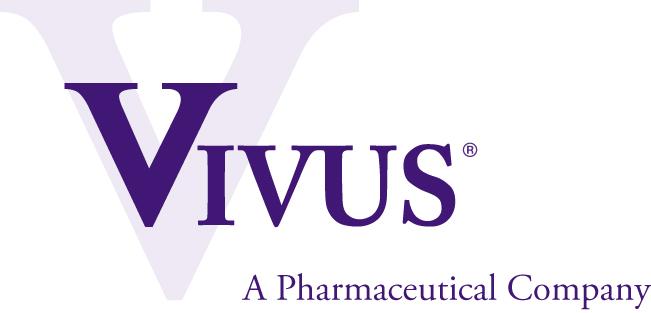In addition to startups, SPARK IP has also been licensed or optioned to established companies
Below are some vignette from our partnerships
REPURPOSED AND NOVEL SMALL MOLECULES FOR USE AS ANTIVIRAL THERAPEUTICS

Shirit Einav, MD
Assistant Professor Of Medicine (infectious Diseases) And Of Microbiology And Immunology
Dr. Einav’s team has identified two human host proteins that are essential for viral life cycle. With SPARK support, the team discovered that a combination of two FDA-approved anti-cancer drugs were effective against hepatitis C, Dengue, West Nile, and Ebola viral infections. During the West African ebola outbreak several years ago, the drug combination therapy was selected along with Z-MAPP and convalescent serum for a clinical study in Sierra Leone that was sponsored by the WHO and Gates Foundation.
Globavir Biosciences, a company committed to delivering antiviral therapies to the developing world, has licensed this two-drug combination therapy and is planning international clinical trials in patients with dengue virus infections. In addition to this drug combination, Dr. Einav’s team identified novel lead compounds with broad-spectrum antiviral activity.
A REGENERATIVE MEDICINE THERAPY FOR INCREASING MUSCLE MASS
Brian Feldman, MD
Assistant Professor Of Pediatrics (Endocrinology)
Dr. Brian Feldman’s team identified a glucocorticoid-repressed receptor and ligand in mesenchymal stem cells induces preferential differentiation into skeletal muscle rather than fat tissue. The protein has the potential to be used directly as a therapeutic agent for a variety of muscle diseases. Mature transgenic mice increased muscle mass compared to wild type mice. The protein promoted myogenesis in vivo by activating muscle stem cells and promoting differentiation and fusion into myofibers.
The invention was licensed to Nutra in South Korea. Dr. Feldman’s team has received industry sponsored grant and SAB & and remain involved in the project.
PEPTIDE THERAPEUTIC TO TREAT POSTPRANDIAL HYPOGLYCEMIA COMPLICATING BARIATRIC SURGERY

Tracey McLauglin, MD
Professor Of Medicine (Endocrinology)
Approximately 5% of individuals undergoing the most effective form of weight loss surgery (roux-en-Y gastric bypass) develop profound hypoglycemia following meals. This disorder is characterized by frequent episodes of severe hypoglycemia with neurologic symptoms including loss of consciousness and seizures, marked disability, and possibly death. Dr. McLaughlin sought to develop a subcutaneous formulation of a glucagon-like peptide-1 receptor antagonist for this serious unmet medical need. SPARK supported a successful Proof of Concept clinical trial in patients suffering from this disorder.
The invention was licensed to Eiger BioPharmaceuticals.
TACROLIMUS (FK506) FOR THE TREATMENT OF PULMONARY ARTERIAL HYPERTENSION

Edda Spiekerkoetter, MD
Assistant Professor Of Medicine (pulmonary And Critical Care Medicine)
Pulmonary arterial hypertension (PAH), a devastating rare disease that affects children and adults alike, is characterized by the narrowing of the pulmonary vessels resulting in right heart failure. In a high throughput screen of FDA approved drugs, Dr. Spiekerkoetter and her team found that the immunosuppressive drug tacrolimus activated the BMPR2 pathway, which is downregulated in PAH. The team showed that tacrolimus reversed PAH in experimental models at doses far below those that suppress the immune system. With SPARK support and that of the Wall Center for Pulmonary Vascular Disease at Stanford, the team completed a clinical phase IIa trial demonstrating improvement in multiple markers of disease activity. In a compassionate use arm of the study, all three end-stage PAH patients awaiting lung transplantation improved sufficiently to come of the transplant list.
Vivus acquired the development and commercialization rights for this discovery. The project received the orphan drug designation and a large clinical study is planned.
NEONATAL HYPERBILIRUBINEMIA

David Stevenson, MD
The Harold K. Faber Professor Of Pediatrics And Professor, By Courtesy, Of Obstetrics And Gynecology
With SPARK funding, Dr. Stevenson’s team developed formulations zinc protoporphyrin (ZnPP), using spray-drying and emulsion encapsulation techniques to incorporate ZnPP into microparticles. These formulations were designed to allow oral bioavailability and enhance gastric passage and intestinal absorption of ZnPP for the treatment of newborn infants with severe hyperbilirubinemia, a condition that can cause severe brain damage. Among the formulations created and tested, the team found that the lipid-only-based preparation (ZnPP-Lipid), prepared using FDA-approved biodegradable endogenous phospholipids (DPPC and DSPC), was the most promising.
Dr. Stevenson’s therapeutic has been licensed by La Jolla Pharmaceuticals and first in human clinical trials are imminent.
